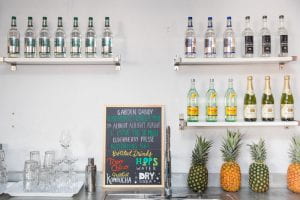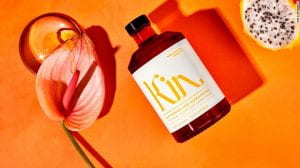Sober curiosity is changing how we think about alcohol consumption and is contributing to a movement that is re-branding alcohol-free choices. The term, coined by the British journalist Ruby Warrington, is also the title of her new book which places thoughtful emphasis on what motivates us to drink and how we feel when we consume alcohol. Below are examples of new trends that could help advanced sober curious crusaders [1].
New studies show that internationally, people would like to drink less and research also shows that in some places, Millenials are drinking less. One international cross-sectional survey involving 21 countries found that 33% of the respondents indicated they were interested in drinking less alcohol over the next year [2]. When participants were asked why they would like to cut down on alcohol consumption, some of the main reasons included being healthier, while others experienced an alcohol-related trauma or event like a sexual assault that motivated a desire to change drinking habits [2]. Another study explored recent trends in non-drinking among UK Millennials to understand the motivating factors as to why this younger generation was abstaining from alcohol consumption or delaying initiation of alcohol. This study found that on average, younger people were abstaining from alcohol and while the exact reasons are unknown, the authors posit that a combination of strict alcohol laws and policies, a desire to be healthy and more widespread knowledge of the harms of drinking are shifting the social and cultural norms that are influencing drinking behaviors among younger people [3].
Overall, alcohol sales are on the decline, and some are capitalizing on this new trend positively. For example, there is a growing number of events in different cities that are connecting sobriety to other topics of interest (i.e., entrepreneurship). So instead of alienating non-drinkers, there are new opportunities for people to connect and be social without any pressure or stigma to drinking. In addition many bars and menus are enhancing their “mocktail” menus (of alcohol free drinks) and cities like New York and Chicago proudly boast about sober or booze-free bars (and pop-up bars) that exclusively serve mocktails and cater to the sober crowd or sober professional that still wants to socialize and have a good time[1, 4].
Sober curiosity aims to normalize the right that every individual has to completely abstain from drinking alcohol or to say no to alcohol at any given moment, for whatever reason. Ruby Warrington was interested in creating a term that engenders a safe alcohol-free option for people who still wish to participate in social functions where alcohol typically plays a role. A sober curious philosophy embraces lifestyle choices for people who might be more conscious about other health issues and actively trying to sleep better, engage in physical activity, and make healthier eating choices. To demonstrate the popularity of this topic and the budding interest that might be representative of a more significant trend, there are now smartphone apps and a podcast titled Sober Grind dedicated to exploring sober curiosity in more depth [5].
It’s up to us to pick our poison as they say, but at least now maybe there will be fewer eye rolls if a non-alcoholic beverage is the drink of choice. At the very least, it’s a conversation starter and hopefully allows both drinkers and non-drinkers alike to reflect.
References
- Fallert, N., Why you’re likely going to hear more about being “sober curious”, in Vox. 2019, Vox Media. https://www.vox.com/the-goods/2019/3/26/18267092/sober-curious-nonalcoholic-drinks-spirits
- Davies, E.L., et al., Motivations for reducing alcohol consumption: An international survey exploring experiences that may lead to a change in drinking habits. Addict Behav, 2017. 75: p. 40-46.
- Ng Fat, L., N. Shelton, and N.J.B.P.H. Cable, Investigating the growing trend of non-drinking among young people; analysis of repeated cross-sectional surveys in England 2005–2015. 2018. 18(1): p. 1090.
- Frishberg, H., NYC’s sober bar scene is a ‘hip’ oasis for booze-free fun, in New York Post. 2019: New York. https://nypost.com/2019/04/23/nycs-sober-bar-scene-is-a-hip-oasis-for-booze-free-fun/
- O’Brien, S.A., People are sick of drinking. Investors are betting on the ‘sober curious’, in CNN Business. 2019: New York. https://www.cnn.com/2019/06/08/tech/alcohol-alternative-sober-curious/index.html



